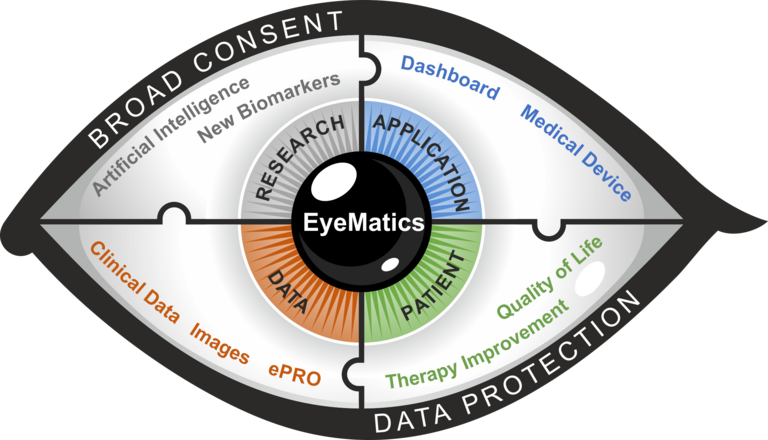On Thursday, April 11, 2024, I attended the official EyeMatics kick-off event in Münster.
In January 2023, the Medical Informatics Initiative (MII) entered the consolidation and extension phase to further advance digitalisation in health research. In the new funding phase, the cooperation between the university hospitals is to be expanded and extended to include new partners, especially from regional care.
In the first phase so-called data integration centres (DICs) have been established at the university medical sites throughout Germany. In these centres, health care data are to be made available and shared for medical research in accordance with data protection regulations. During the consolidation and extension phase, the functionality of the DIC will be tested and further developed in new use cases of the MII. Eight clinical use cases and three methodology platforms have been funded.
One of these use cases is the project EyeMatics - "Treatment" of eye diseases with interoperable medical informatics, which aims to collect and analyze clinical data from patients with eye diseases from different clinical sites in Germany. Here, the focus is on patients with age-related macular degeneration (AMD) and diabetic retinopathy (DR). There is no cure for these eye diseases and later stages can lead to blindness due to abnormal blood vessel growth. To maintain visual acuity, abnormal retinal blood vessel growth can be treated by regular eye injections of anti-VEGF (vascular endothelial growth factor).
For EyeMatics, the data of these regularly treated patients will be collected from the university hospitals in Aachen, Greifswald, Münster, Tübingen and two clinical rollout partners in Chemnitz and Leipzig.
In order to make clinical image data and annotations usable, close collaboration between doctors and specialists from the fields of data management, information technology and artificial intelligence will be established across all sites. The EyeMatics project offers the opportunity to analyze therapy-relevant data across four federal states. For example, our group will be involved in exploring machine learning methods to gain a more systematic understanding of disease progression at the individual patient level, with the ultimate goal of improving clinical anti-VEGF treatments.


